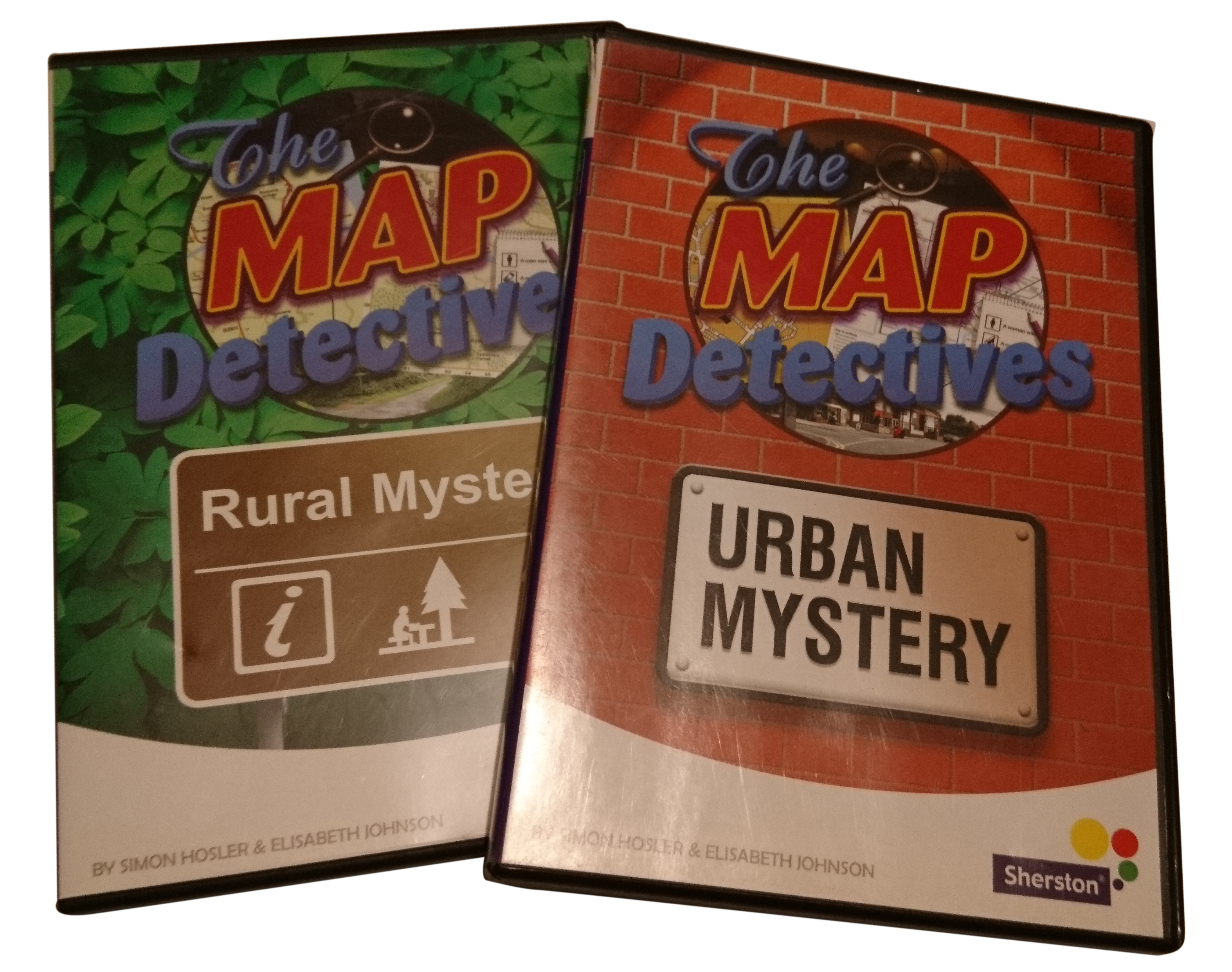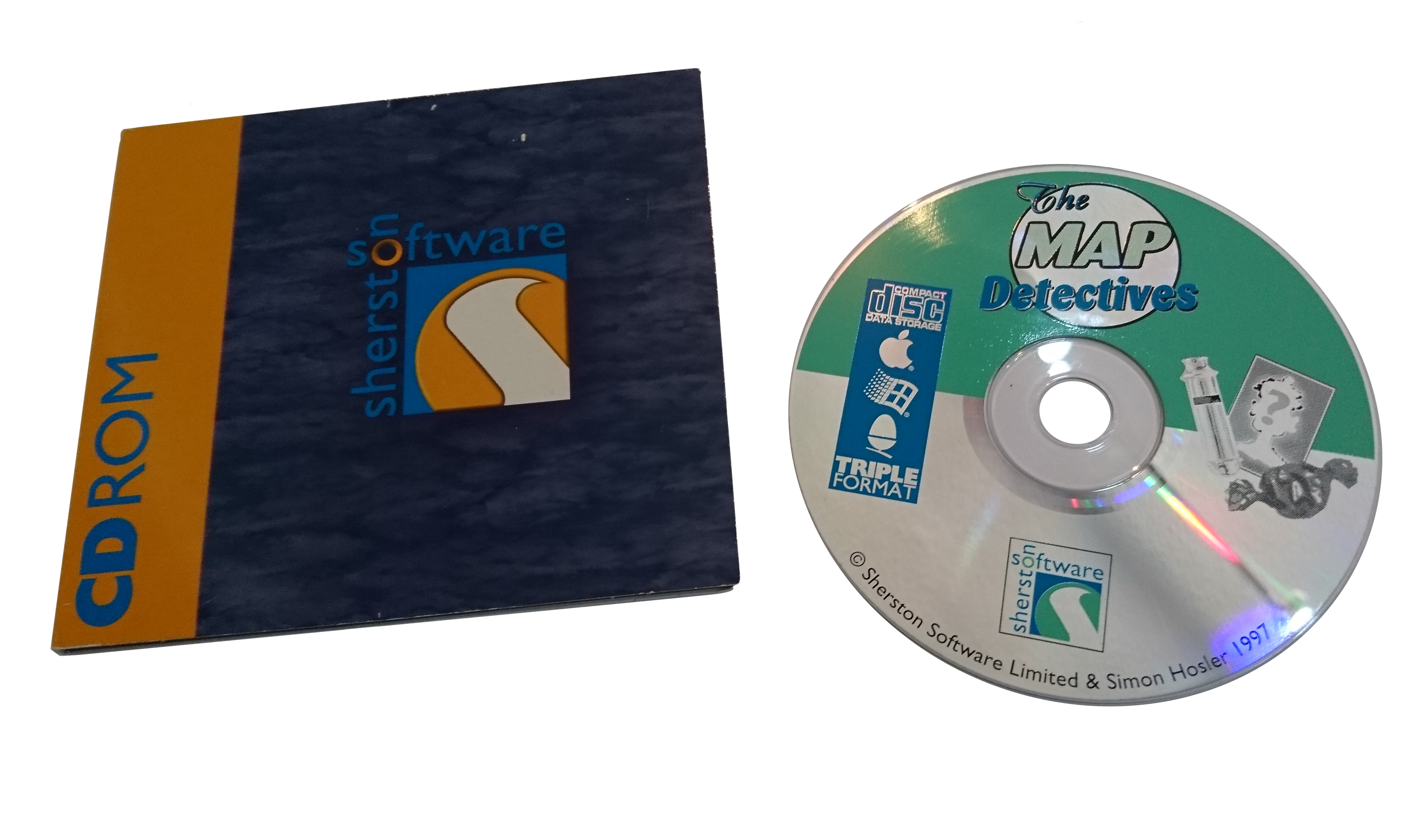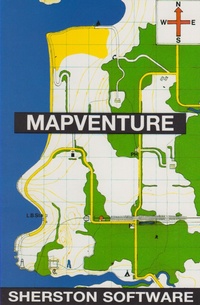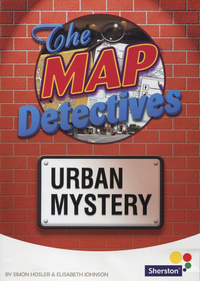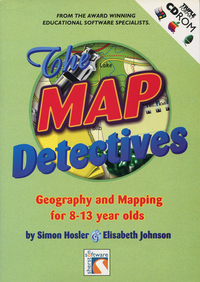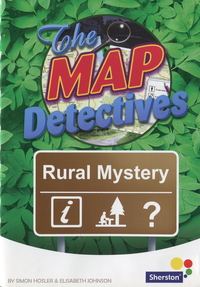The Map Detectives: A Video Game MysteryIn this article I talk mostly about two games: The Map Detectives: Urban Mystery and The Map Detectives: Rural Mystery. These will be shortened to ‘Urban Mystery’ and 'Rural Mystery’ for ease of reading.
Despite using a BBC Micro at school around this time (yes, really), it was fortunate that I could at least remember that this particular PC was running Windows 95. I could also distinctly remember the game having what I later learned were known as ‘feelies’ - printed suspect cards and maps. These aided the gameplay and provided immersion, making you feel like a real detective! I recalled using rural countryside maps, and also travelling the London Underground. At this point, I certainly didn’t know this was potentially two separate games from the same series. The UI seemed very ahead of its time, with navigation not unlike Google Street View long before it was conceived. I was both fascinated and impressed by the fact that this game used 'real' images! That was something I'd never seen in a computer game before. I gathered that the educational aspect of the game was to learn how to read and use different kinds of maps, but at the time I simply found it very fun.
I posted in various forums during my years of Googling in the hope of identifying this game, but unfortunately all of the features I could remember were so similar to those in other, more common (and American) games, such as Eagle Eye Mysteries or even Carmen Sandiego - that I kept getting results and suggestions for those instead. I couldn't remember anything about the title or any particular characters - all I really had was the maps element, the underground, and feelies. The few people I'm still in contact with from that school didn't remember it and I wasn't surprised; I played it alone! I even contacted my old school to see if they had any records of software purchased, expressing my interest in preserving educational software, but sadly got no response. Later, while archiving some software at the museum, I found myself researching Sherston Software, and I came across the name of the series 'The Map Detectives' and began to look into it. It seemed there were two separate titles: the first release was Rural Mystery and then Urban Mystery shortly after. They both focused on different kinds of maps, with Urban introducing the Tube map. Both had a similar storyline of a large event at a venue with lots of guests; an item is stolen, and the player's job is to travel around to find and interview suspects and finally solve the case. With so few screenshots online, I set out to find a copy. I eventually found a physical copy of Rural Mystery on ebay for less than £10 to try it myself. It came in a DVD case along with a large double-sided map. I played the game and... completed it in around ten minutes. But I was pleased to have found it!
However - these two games came in DVD cases, and what I remembered was more of a ‘big box’ package, and the minimum requirements said Windows 98 when I was so sure I had played it on Windows 95. Furthermore, the discs were dated 2005 when I knew I'd long left that school by then, yet the content was far too similar to just dismiss. I presumed these must be later re-prints or re-issues of the game I had played, or perhaps the home rather than school version. I suspected that the feelies I remembered could even have been printed and laminated by my teachers themselves. But this wasn’t quite right… Hoping to find out more, I reached out to Sherston Software themselves in 2017, asking for extra information, particularly about any supplementary material that may have been distributed to schools. They did confirm that 'it was provided in a box with support material for schools to use', but said the educational materials were no longer available, and they no longer sold the CD/DVD version. I was offered a digital download of the game for £16.99+VAT. I said this was sadly out of my budget and politely declined, they then chose to inform me that this was a significant saving over the school price of £300+VAT. Although I'd heard Sherston were notoriously protective of their software, even dating back to the BBC Micro, I was still surprised they were selling a fifteen-year-old game at full retail price.
Later, a copy of Urban Mystery appeared on my ebay saved search. I bought it, believing I'd completed my collection of The Map Detectives series. In a strange coincidence, just a couple of weeks after this, I found a second copy of Rural Mystery in a charity shop less than one mile from the museum for 75p, which I bought and donated to the museum’s collection. In early 2019, Sherston Software appeared have to closed down and none of their sites were running. In April 2020, I streamed Urban Mystery on Twitch using a Windows XP virtual machine as part of a charity streamathon to raise funds for the museum during lockdown. Another volunteer was watching my stream and expressed an interest in taking a look at the game files. Eager to learn more about how this game was put together, I supplied them. You can read about what he found out about the games on his site here. I later learned from Simon Hosler that the locations in Rural Mystery were real places around Sherston Software's home of Wiltshire, with road names changed. It would be interesting to one day find some of these places now and compare the images. The London Underground map in Urban Mystery is complete (as it was in 2005) and licensed for use by TfL, but the game cleverly only fully represents a small number of stations, many can only be passed through without exploring. Just a few weeks later, we happened to find another instance of The Map Detectives in some unsorted software in the archive. It was in a Sherston Software branded card sleeve, and the disc had just the title 'The Map Detectives’ printed on it, and the year 1997. It was an unusual triple format compact disc, which could run on PC, Mac, or Archimedes. I wondered if this would be Urban or Rural Mystery, and started up the Windows 98 PC in the Retro Classroom to try it. Again, the title screen just said ‘The Map Detectives’. It took you through an extremely similar signing-up and beginning process as the two other games. Then, the game showed photographs of a character's home, where you had to work out for yourself which item had gone missing - an element I had completely forgotten until I saw it - but which made it obvious I wasn’t playing the 2005 DVD case game. I was playing this initial 1997 release! Perhaps this version was only distributed to schools, since it didn't have a labelled or retail outer case. I tried to research this edition, but the only specific mention I could find of this release is a Times Educational Supplement review from 1998. Rural Mystery & Urban Mystery are both credited as being by Simon Hosler & Elisabeth Johnson. They worked together on The Crystal Rainforest and numerous other games, and Simon Hosler was the lead on many of Sherston's titles back on the BBC Micro. The cases of the two 2005 games mention websites: mdurban.co.uk and mdrural.co.uk, which are sadly no longer accessible, even via the Wayback Machine. Within their long career of successful educational software, Sherston had a strong history of creating games that taught map reading & geography skills, from Mapventure on the BBC Micro in 1988 - which the 1997 & 2005 The Map Detectives could been seen as a spiritual successor to - to Where in the World is Barnaby Bear with BBC Active in 2007. I am pleased we can at least document the history of the series here, and digitally preserve the game files for these four The Map Detectives titles as part of our video game preservation work. Next... on to The Email Detectes and The Web Detectives! Thanks to museum volunteer Phil for looking into the game files, you can read about what he uncovered here. Katrina Bowen, Design & Communications Officer. Related Items in the Collection:This web page has a reference ID of CH61152. Please quote this reference ID in any communication with the Centre for Computing History.
|



